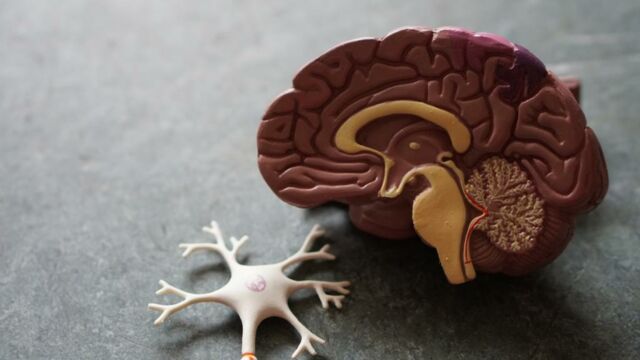Alzheimer's: Scientists discover the surprising link between the disease and your stomach

Scientists have discovered a direct link between Alzheimer's disease and intestinal microbiota. Here's what it means.
Experts estimate that around 35 million people worldwide are affected by Alzheimer's disease, a progressive neurodegenerative pathology. In practice, this translates into the progressive deterioration of brain cells. Memory loss, thought and behaviour disorders are just some of the consequences. Scientists have found a link between intestinal microbiota and the disease.
Discover our latest podcast
Alzheimer's and your stomach
A study published in the scientific journal Brain reports the discovery. Alzheimer's disease may take place in the brain, but it's in the belly that it's most likely to be triggered. To reach this conclusion, researchers conducted a laboratory experiment. They transplanted the microbiota of patients suffering from the disease into healthy animals. After analysis, they realized that Alzheimer's symptoms had appeared.
More under this adMore under this adIt's not the first time researchers have discovered that the brain and intestines communicate with each other. Indeed, the intestines are rightly referred to as the second brain. But this is the first time the link has been made with Alzheimer's disease. The animals on which the experiment was conducted showed a decline in the growth of new nerve cells in the hippocampus. This is the region of the brain where immediate memory is processed.
Reducing the onset of disease
Doctors are clear. While the disease cannot be cured (it remains incurable to this day), the aim is to delay its onset by improving the health of one's microbiota and therefore one's quality of life. Every year, 7.7 million new cases are detected. 40% of these could be avoided by controlling the factors that trigger or accelerate the disease.
More under this adMore under this adThese are the findings of a study published in The Lancet. Prevention includes correcting hearing loss, maintaining good blood pressure, reducing alcohol consumption and not eating ultra-processed foods.
Alzheimer's disease is a form of dementia that is not part of the normal aging process. It progresses through several stages, from the mildest to the most severe, including total loss of autonomy.
More under this adMore under this adToo much belly fat has been associated with decreased focus, concentration, decision making & mood control.
— Dan Go (@FitFounder) June 25, 2023
It has been linked to an increase in dementia, Parkinson's disease & Alzheimer's.
If you want a better brain avoid having a big belly.
Source: https://t.co/O5aovxOY9h
Read more:
⋙ How many times you poop a day could tell you a lot about your brain's health
⋙ Eating these foods can lead to anxiety, depression, and cognitive decline, as per scientists
⋙ 3 surprising signs you're at risk of Alzheimer's
⋙ Dementia: The chronic use of antibiotics and its effects on cognitive function
⋙ Poor vision: It could mean you have higher risk of having dementia, as per study
This article has been translated from Gentside FR.
Sources used:
Brain: Beyond the brain: The gut microbiome and Alzheimer’s disease
The Lancet: Dementia research in 2023: the year of anti-amyloid immunotherapy